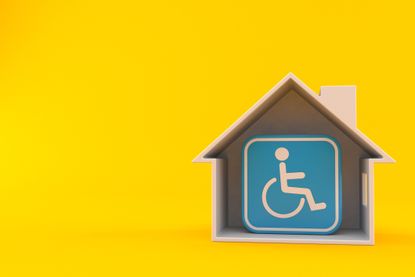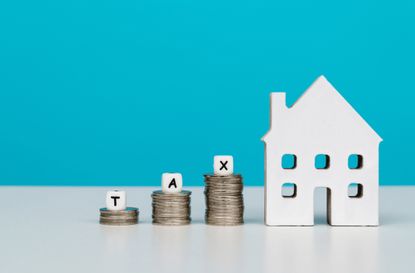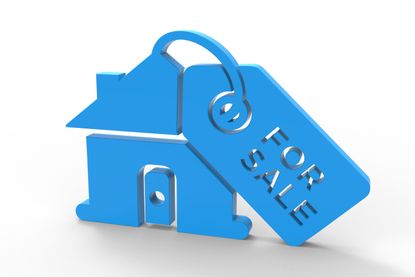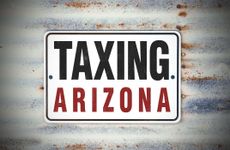Ten Tax Breaks for Homeowners and Home Buyers
Owning (or buying) a home is expensive. But there are some tax breaks for homeowners that can help you recoup some of those costs.


Owning a home is considered by some to be part of the American Dream, but being a homeowner can be difficult and expensive. Fortunately, there are some tax breaks for homeowners (and homebuyers) that can make it a little more affordable.
While some of these tax breaks can be complex, and not everyone may be eligible for them, they can provide significant tax savings for those who are.

Using 401(k) or IRA funds to buy a home
To become a homeowner, you will need money for a down payment. If you have an IRA or a 401(k) account, you might be able to tap into those funds to help you buy a home.
Traditional IRA: Savers with a traditional IRA can withdraw up to $10,000 from the account to buy, build, or rebuild a first home without paying the 10% early withdrawal penalty — even if you're younger than age 59½. If you're married, both you and your spouse can withdraw $10,000 from separate IRAs without paying the penalty.
Roth IRA: You can withdraw contributions from your IRA at any time. However, withdrawing earnings is typically subject to taxes (and, for some, penalties). However, if your IRA has been established for at least five years, you can withdraw up to $10,000 of earnings to make a down payment on your first home.
(Note: To qualify as a first home, you and your spouse cannot have owned a home for the past two years.) However, even though you escape the penalty, you're still required to pay tax on the amount you withdraw.)
401(k): If you want to pull money out of a 401(k) account to put toward a down payment, you will have to borrow from the plan. You can typically take out a tax and penalty-free loan from your 401(k) plan for up to half of your balance (but not more than $50,000). However, there are some things you should know before you do.
- Money borrowed from a 401(k) usually must be paid back (with interest) within five years, but the repayment period for loans used to purchase a main home can be extended.
- You'll have to repay the loan before your next tax return is due if you leave or lose your job. Otherwise, you'll have to pay taxes on the unpaid balance( and a 10% early-withdrawal penalty, depending on your age).

Mortgage interest deduction
For most people, the biggest tax break from owning a home comes from deducting mortgage interest. If you itemize, you can deduct interest on up to $750,000 of debt ($375,000 if married filing separately) used to buy, build, or substantially improve your primary home or a single second home.
Allowable mortgage interest tax deduction amounts differ for married taxpayers filing separately and for homes purchased prior to Dec. 16, 2017.
Improvements are "substantial" if they add value to the home, extend the home's useful life or adapt the home for new uses. Basically, additions and major renovations are "substantial," but basic repairs and maintenance are not.
Your lender will send you a Form 1098 in January listing the mortgage interest you paid during the previous year. That's the amount you deduct on Schedule A (Form 1040).

Mortgage interest credit
In addition to the mortgage interest deduction, there's also a mortgage interest tax credit available to homeowners with lower incomes who were issued a qualified Mortgage Credit Certificate (MCC) from a state or local government to subsidize the purchase of a primary home.
- The credit amount ranges from 10% to 50% of mortgage interest paid during the year. (The exact percentage is listed on the MCC issued to you.)
- The credit is limited to $2,000 if the credit rate is higher than 20%.
- However, if your allowable credit is reduced because of the limit, you can carry forward the unused portion of the credit to the next three years or until used, whichever comes first.
To claim the credit, complete Form 8396 and attach it to your 1040. You also need to report the credit amount on Schedule 3 (Form 1040).
If you claim the mortgage interest credit, you have to reduce your mortgage interest deduction on Schedule A by the credit amount. If you refinance your original loan, you'll have to get a new MCC in order to claim the credit on the new loan — and the credit amount on the new loan may change. Also, if you sell the home within nine years, you may have to repay all or part of the benefit you received from the MCC program.

Credits for energy-saving home improvements
The IRS will reward you with a tax credit if you install certain energy-efficient equipment in your home. For the 2023 tax year (for taxes filed in 2024), you'll save 30% on the following qualifying expenses.
- Qualified energy efficiency improvements installed during the year
- Residential energy property expenses
- Home energy audits
The energy efficient home improvement credit is non-refundable, so taxpayers cannot receive any portion of the credit back as a tax refund. And while there is no lifetime limit (until the credit's expiration in 2033), annual limits apply.
- You can claim $1,200 for energy property costs and qualifying energy-efficient home improvements
- Annual credit amounts are limited to $250 per door ($500 maximum), $600 for windows and $150 for home energy audits.
- You can claim a credit of up to $2,000 per year for qualified heat pumps, biomass stoves or biomass boilers.

Credit for electric vehicle charging equipment
You might know about the EV tax credit for the purchase of electric cars, but did you also know that there's a credit available for installing electric vehicle recharging equipment at your home? The federal tax credit for EV chargers is worth 30% of the costs of the qualifying equipment, up to $1,000.
Starting in 2023, the EV charger tax credit also applies to "bidirectional" charging equipment, which allows you to charge an electric vehicle's battery or send electricity from the battery back to the electric grid.
Complete Form 8911 to calculate the credit, then claim it on Schedule 3 (Form 1040).

Tax deduction for medically necessary home improvements
You may qualify for a medical expense deduction if you install special equipment in or make modifications to your home for medical reasons. Here are some common examples of medically necessary upgrades to a home:
- Adding ramps
- Widening doorways
- Installing handrails
- Lowering cabinets
- Moving electrical outlets
- Installing lifts or elevators
Costs for the operation and upkeep of these upgrades are also deductible as medical expenses if the upgrade itself is medically necessary.
You have to itemize to claim the deduction, and you can only deduct medical expenses that exceed 7.5% of your adjusted gross income (AGI). The deduction is also reduced by any increase in the value of your property. So, for example, if you spend $50,000 to install an elevator, and that increases your home's value by $40,000, you can only deduct $10,000 ($50,000 – $40,000).

Property tax deduction
You might be able to deduct property taxes paid in 2023 on your federal income tax return. However, you must itemize in order to deduct real property taxes. These other types of taxes may be deductible, too.
- State income taxes
- Local income taxes
- Sales taxes
There's also a $10,000 limit ($5,000 if you're married but filing a separate return) on the combined amount deductible taxes, and not all property tax payments qualify.

Forgiveness of debt on a foreclosure or short sale
In some cases, when a homeowner falls behind on mortgage payments, the lender may eventually reduce or eliminate the mortgage debt through a "short sale" or foreclosure. Normally, when a debt is wiped clean, the amount forgiven is treated as taxable income. But, when it comes to mortgage debt forgiven as part of a foreclosure or short sale, up to $750,000 of discharged debt on a principal residence may be tax-free ($375,000 if married filing separately). However, there are some exceptions.
- The exclusion only applies to a mortgage you took out to buy, build, or substantially improve your main home.
- The mortgage must also must be secured by your main home.
- Debt secured by your main home that you used to refinance a mortgage you took out to buy, build, or substantially improve your main home also counts, but only up to the amount of the old mortgage principal just before the refinancing.
No tax break is available if the discharge of debt is because of services you performed for the lender, or for any other reason not directly related to a decline in your home's value or your financial condition. In addition, the amount excluded reduces your cost basis in the home.

Capital gain exclusion when selling your home
You probably won't have to pay taxes on all or part of the gain from the sale. Your home is considered a capital asset. Normally, you have to pay capital gains tax when you sell a capital asset for a profit.
However, there is a capital gains tax exclusion for homeowners that can help. If you're married and file a joint return, you don't have to pay tax on up to $500,000 ($250,000 for single filers) of the gain from the sale of your home if all of the following apply:
- You owned the home for at least two of the past five years
- You lived in the home for at least two of the past five years
- You haven't used this exclusion to shelter gain from a home sale in the last two years
So, for example, if you bought your home five years ago for $600,000 and sold it for $700,000, you won't pay any tax on the $100,000 gain if all the exclusion requirements are satisfied. (Unfortunately, if you sold your home for a loss, you can't deduct the loss.) Any profit over the $500,000 or $250,000 exclusion amount is reported as capital gains on Schedule D.
If you don't meet all the requirements, you still might be able to exclude a portion of your home-sale profits if you had to sell your home because of a change in your workplace location, a health issue, a divorce or some other unforeseen situation. The amount of your exclusion depends on how close you come to satisfying the ownership, live-in and previous-use-of-exclusion requirements.

Increased basis when selling your home
If the capital gains tax exclusion doesn't eliminate your tax bill when you sell your home, you can still reduce the tax you owe by adjusting the basis of your home. Your taxable gain is equal to the sales price of your home minus the home's basis. So, the higher the basis, the lower the tax.
What you originally paid for the home is included in the basis. But you can also tack on various costs associated with the purchase and improvement of your home.
For example, you can include certain settlement fees and closing costs you paid when you bought the home. If you had the house built on land you owned, the basis includes the cost of the land, architect and contractor fees, building permit costs, utility connection charges, and related legal fees. The cost of additions and major home improvements can be added to the basis, too (but not basic repair and maintenance costs).
Related Content
Rocky Mengle was a Senior Tax Editor for Kiplinger from October 2018 to January 2023 with more than 20 years of experience covering federal and state tax developments. Before coming to Kiplinger, Rocky worked for Wolters Kluwer Tax & Accounting, and Kleinrock Publishing, where he provided breaking news and guidance for CPAs, tax attorneys, and other tax professionals. He has also been quoted as an expert by USA Today, Forbes, U.S. News & World Report, Reuters, Accounting Today, and other media outlets. Rocky holds a law degree from the University of Connecticut and a B.A. in History from Salisbury University.
- Katelyn WashingtonTax Writer
-
 Strategies to Optimize Your Social Security Benefits
Strategies to Optimize Your Social Security BenefitsTo maximize what you can collect, it’s crucial to know when you can file, how delaying filing affects your checks and the income limit if you’re still working.
By Jason “JB” Beckett Published
-
 Don’t Forget to Update Beneficiaries After a Gray Divorce
Don’t Forget to Update Beneficiaries After a Gray DivorceSome states automatically revoke a former spouse as a beneficiary on some accounts. Waivers can be used, too. Best not to leave it up to your state, though.
By Andrew Hatherley, CDFA®, CRPC® Published
-
 A Bunch of IRS Tax Deductions and Credits You Need to Know
A Bunch of IRS Tax Deductions and Credits You Need to KnowTax Breaks Lowering your taxable income is the key to paying less to the IRS. Several federal tax credits and deductions can help.
By Kelley R. Taylor Last updated
-
 Don’t Miss This $2,500 Tax Break for Paying Your Student Loan
Don’t Miss This $2,500 Tax Break for Paying Your Student LoanTax Deductions Do you qualify for the student loan interest deduction this year?
By Katelyn Washington Last updated
-
 Six Tax Breaks That Get Better With Age
Six Tax Breaks That Get Better With AgeTax Breaks Depending on your age, several tax credits, deductions, and amounts change — sometimes for the better.
By Kelley R. Taylor Last updated
-
 Biden Proposes New Homebuyer Tax Credits
Biden Proposes New Homebuyer Tax CreditsTax Credits President Biden is calling for new middle-class tax breaks including a mortgage tax credit.
By Kelley R. Taylor Last updated
-
 Will Florida Property Tax Be Eliminated?
Will Florida Property Tax Be Eliminated?Property Taxes A new proposal is raising questions about revenue generation in the Sunshine State.
By Kelley R. Taylor Published
-
 States That Won't Tax Your EV
States That Won't Tax Your EVState Tax Most states impose additional fees on electric vehicles, but these states don’t penalize EV owners, and some also offer other tax incentives.
By Kelley R. Taylor Last updated
-
 Tax Season is Here: Big IRS Tax Changes to Know Before You File
Tax Season is Here: Big IRS Tax Changes to Know Before You FileTax Filing Tax deductions, tax credit amounts, and some tax laws have changed for the 2024 tax filing season.
By Kelley R. Taylor Last updated
-
 Your Arizona Family Rebate is Taxable: What to Know
Your Arizona Family Rebate is Taxable: What to KnowState Tax Thousands of Arizona families will need to report income from special child tax relief payments.
By Kelley R. Taylor Last updated
